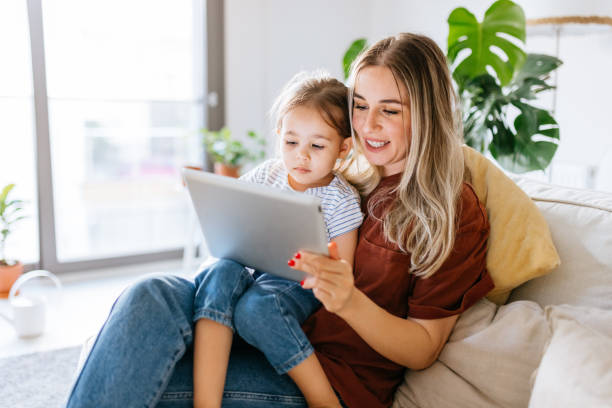
Parenting & Family
👨👩👧 Raising the Future: How Modern Parenting is Evolving in the Age of Technology and Emotional Intelligence
Parenting in the Digital Age: A New Frontier
Parenting has never been static—but in 2025, it’s transforming faster than ever. With technology woven into nearly every aspect of our lives, parents are balancing the promise of innovation with the timeless values of empathy, patience, and love.
Trusted resources like Parents.com
and UNICEF Parenting
offer essential guidance for families navigating this new world. From screen-time balance to emotional resilience, the modern parent’s toolkit now blends science, psychology, and technology.
The Shift Toward Emotionally Intelligent Parenting
Emotional intelligence (EQ) has become one of the most discussed parenting skills of the decade—and for good reason. Research shared by APA.org
shows that children who learn empathy, self-awareness, and emotional control are more likely to thrive academically, socially, and mentally.
Parents today are redefining success—not through perfectionism, but through presence. Instead of focusing solely on achievements, they emphasize communication, emotional vocabulary, and problem-solving.
Ways parents can nurture emotional intelligence:
Encourage open conversations about feelings.
Model calm responses to stress.
Teach children to identify emotions and regulate reactions.
Celebrate effort, not just outcomes.
When caregivers focus on emotional health, they’re not only raising capable kids—they’re raising kind humans.
Technology: Friend or Foe?
There’s no denying technology’s impact on family life. From educational apps to smart monitors, tech can both support and challenge parenting goals. According to Parents.com
, the key lies in intentional use—making sure technology enhances connection instead of replacing it.
Healthy tech habits for families:
Designate “device-free” hours (especially during meals).
Choose apps that promote creativity and problem-solving.
Co-watch and discuss content to teach media literacy.
Use parental controls wisely but avoid over-surveillance.
The goal isn’t to eliminate screens—it’s to use them mindfully, teaching children how to engage with digital spaces responsibly and safely.
Positive Discipline: Guidance Over Punishment
The traditional “because I said so” approach is giving way to positive, evidence-based discipline strategies. Inspired by resources like KidsHealth.org
, modern parenting emphasizes communication, natural consequences, and empathy.
Positive discipline focuses on:
Teaching responsibility instead of enforcing fear.
Setting clear, consistent expectations.
Rewarding positive behavior with praise and acknowledgment.
Using mistakes as learning opportunities rather than shame triggers.
This shift aligns with child psychology research showing that emotional safety nurtures long-term respect and self-control far better than punishment.
The Rise of Mindful Parenting
Mindful parenting—rooted in awareness and compassion—is transforming homes worldwide. It means being present in each interaction, even amid chaos.
When parents respond instead of react, they model patience and empathy. Practicing mindfulness might look like:
Taking a deep breath before addressing misbehavior.
Engaging in daily gratitude with children.
Encouraging screen-free playtime or nature walks.
Using bedtime as a moment for reflection and calm connection.
Mindful parenting helps families navigate stress and uncertainty, especially in a world of constant change.
Building Resilience in a Fast-Changing World
From pandemics to climate anxiety, today’s children face unique challenges. The best thing parents can do? Help them build resilience—the ability to adapt and grow stronger through difficulty.
According to experts featured on Parents.com
and Psychology Today’s Parenting Section
, resilience grows from small, everyday experiences:
Allowing kids to make age-appropriate decisions.
Letting them fail safely—and learn from it.
Teaching problem-solving through open discussion.
Offering unconditional love and encouragement.
When children see that mistakes are part of growth, they develop the courage to try again.
Parenting Communities: The Power of Connection
One of the biggest strengths of modern parenting is community. Whether online or in person, parents are finding solidarity through shared experiences.
Platforms like Reddit Parenting
and Parenting.org
provide forums where families can exchange advice, vent frustrations, and celebrate small victories together.
Meanwhile, Parents.com continues to offer expert-backed articles, product reviews, and age-specific tips—all designed to empower caregivers with trustworthy information.
This collaboration between professional guidance and peer support is reshaping how families thrive in a connected world.
Comments (0)
Please log in to comment
No comments yet. Be the first!